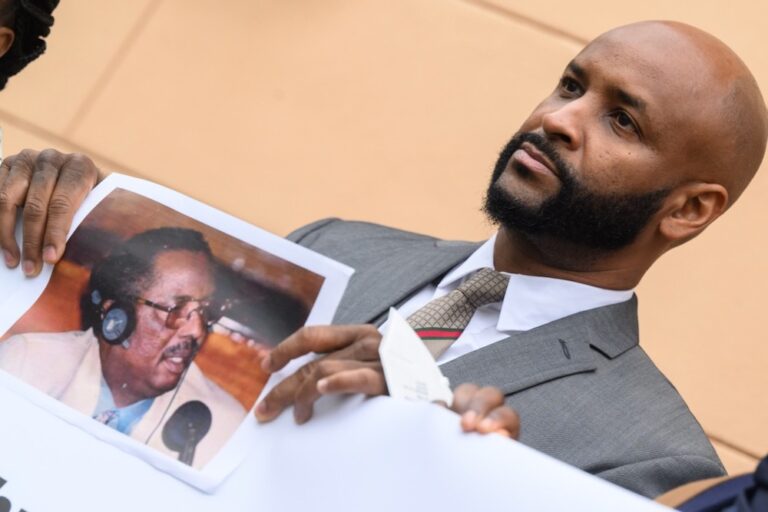(ARTICLE 19/IFEX) – In a 17 January 2005 letter to Commissioner Andrew Ranganayi Chigovera, special rapporteur on freedom of expression of the African Commission on Human and Peoples’ Rights, ARTICLE 19 expressed grave concern over the recent adoption of the “Newspaper Amendment Act 2004” and the Criminal Code (Amendment) Bill 2004. According to ARTICLE 19, […]
(ARTICLE 19/IFEX) – In a 17 January 2005 letter to Commissioner Andrew Ranganayi Chigovera, special rapporteur on freedom of expression of the African Commission on Human and Peoples’ Rights, ARTICLE 19 expressed grave concern over the recent adoption of the “Newspaper Amendment Act 2004” and the Criminal Code (Amendment) Bill 2004.
According to ARTICLE 19, the Newspaper Amendment Act 2004 invalidates the existing framework for registrations of media institutions in The Gambia, by requiring newspapers to re-register with the Registrar General’s office within two weeks of the coming into force of the law. In addition, all private media institutions are required to post a 500,000 dalasis (approx. US$16,665) bond. This represents an increase of 400% from the previous 100,000 dalasis (approx. US$3,330).
The new registration requirement and the bond imposed on media institutions are excessive and tantamount to censorship.
The African Commission on Human and Peoples’ Rights has made it clear that excessive bonds imposed as a prerequisite for the registration of media institutions do not serve any legitimate aim and therefore constitute an undue restriction on the right to freedom of expression guaranteed by Article 9 of the African Charter on Human and Peoples’ Rights. It is also clear that the bond prerequisite is incompatible with other international freedom of expression standards to which The Gambia has subscribed.
ARTICLE 19 also deplored the Criminal Code (Amendment) 2004 Bill. The bill will only encourage further violations of the right to freedom of expression in The Gambia of the sort that have been witnessed in the recent past, ARTICLE 19 argued.
Among other things, the bill widens the definition of libel, thereby dramatically expanding the class of actions or expressions that would attract criminal liability. It also provides for imprisonment of not less than six months, without the option of a fine, for first time offenders for “seditious and libelous” publications. In addition, subsequent offenders may be sentenced to not less than three years in jail, without the option of a fine, and any media used in the alleged seditious publication would be “forfeited to the State”.
The Declaration of Principles on Freedom of Expression in Africa adopted by the African Commission calls on African Union Members to ensure that their laws relating to defamation and the sanctions associated therewith are not so severe as to inhibit the right to freedom of expression. The new legislative measures are unreasonable and excessive and will certainly gravely inhibit the right to freedom of expression in The Gambia.
Many African countries, through the Constitutive Act, have renewed their commitment to good governance and respect for human rights, including the right to freedom of expression. In contrast, the Gambian government continues to threaten media freedom, in violation both of the Gambian Constitution and international and regional human rights norms.


